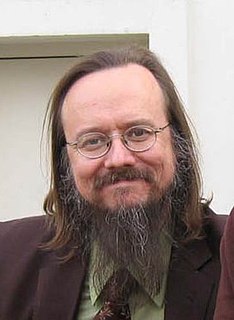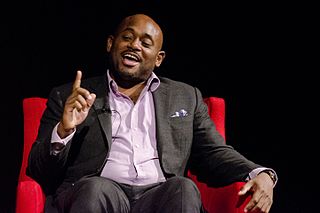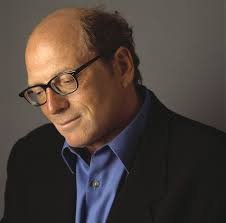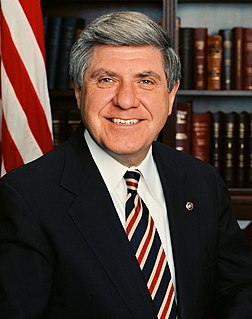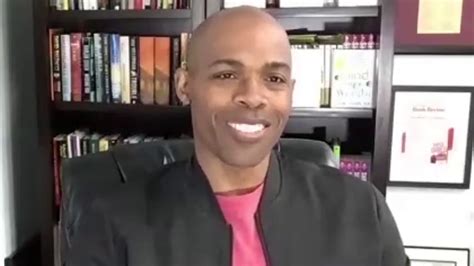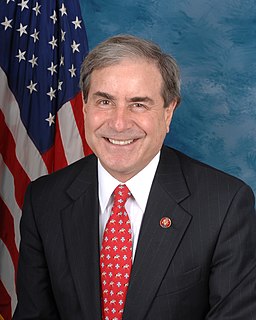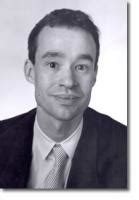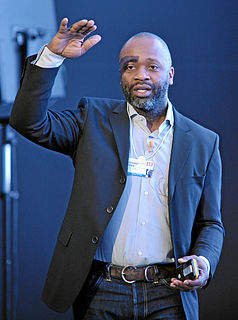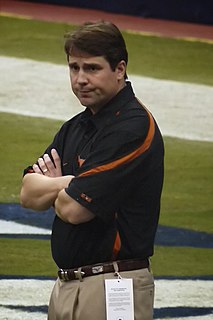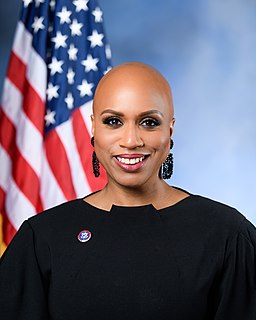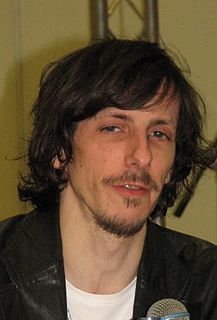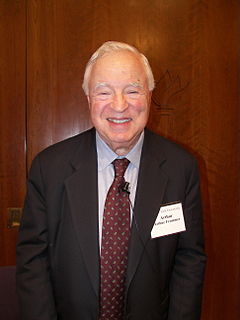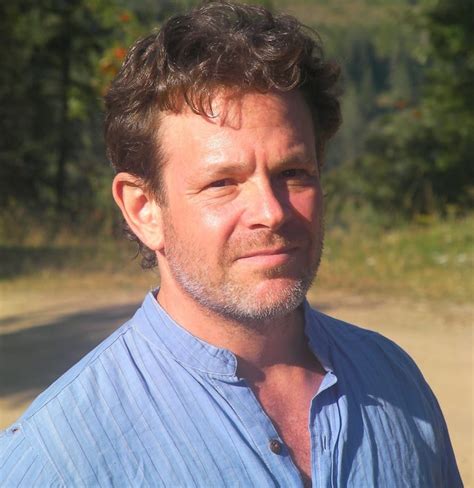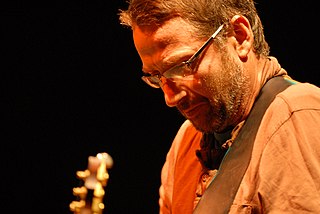Top 1200 Urban Renewal Quotes & Sayings - Page 19
Explore popular Urban Renewal quotes.
Last updated on October 22, 2024.
Because of tax laws governing charities, including almost every single civil rights organization you've ever heard of, including the NAACP, the Urban League, the ACLU, and others, those organizations are not allowed to endorse political candidates or use their resources in political campaigns of any kind.
There's so much material out there that's unnecessarily racist. It takes a shot at what is 'urban' or demonstrates blackness with some sassy, neck-jiving character that's not even relevant to the plot. I see it time and time again, and it doesn't move the story forward. It just kind of cryogenically freezes us in this old racial paradigm.
If you take into account prisoners, a large majority of African American men in some urban areas, like Chicago, have been labeled felons for life. These men are part of a growing undercaste - not class, caste - a group of people who are permanently relegated, by law, to an inferior second-class status.
The global phenomenon of poverty tourism - or 'poorism' - has become increasingly popular during the past few years. Tourists pay to be guided through the favelas of Brazil and the shantytowns of South Africa. The recently opened Los Angeles Gang Tour carries visitors through battle-scarred territories of urban violence and deprivation.
You know, I don't really understand a suburban environment. I want to be out in the woods, I want to be where it's wild, I want to wake up and hear birds, I want to walk outside and see a gaggle of turkeys bouncing across my lawn - I want to be someplace like that - or I want to be right in the middle of an urban environment.
Another agricultural trend of growing concern is the increased nutrient content of coastal waters resulting from fertilizer runoff in agricultural regions. Augmented by urban sewage discharge in some situations, this results in huge algal blooms, which, as they die and decay, deplete the oxygen content in the water, leading to the death of the fish.
There are caste systems in American cities: Many are marginalized to the edges of urban centers due to real estate costs; price tags seem to lurk around human encounters; there's a cult of overwork in the middle class; workers at your local manicurist, your local fast casual restaurant, are exploited.
Out of the Slow Food movement has grown something called the Slow Cities movement, which has started in Italy but has spread right across Europe and beyond. And in this, towns begin to rethink how they organize the urban landscape so that people are encouraged to slow down and smell the roses and connect with one another.
Imagine a master painting that's never finished...when you can only build on previous work, you become limited by what you can paint...If you are in the midst of painting a forest full of tall tress and hanging vines, it is rather difficult to wake up the next day and suddenly turn that paining into the beach and ocean...We have to treat each day like a black canvas on which we can paint. Yesterday might have been paining flowers, but today you can paint cars or horses. A new day represents a chance for renewal.
Walls are very important when you`re separating two urban areas where if you`re actually able to get over the border you can probably get into the underground network in about 30 seconds. But when you`re out in the middle of the desert, it makes no sense because you have border security people have up to a day to apprehend people who are crossing illegally.
Since the beginning of my recording career in 1975, I have had a little difficulty because the pop stations think I'm a jazzer who doesn't have a feeling for pop, so it's hard to get my records played. Similarly, black urban radio doesn't understand that with my R&B roots, I am more than a jazz singer. So I get pigeonholed.
A lot of people feel like urban fantasy is a shortcut that gets you around world-building, because it's set "in the real world." But it doesn't really work that way, as I found out. You have to come up with just as consistent an internal cosmology and magic system as you would if you were writing high fantasy.
The power of the print reviewer is one of those urban myths. There have always been shows that slipped under the critical radar to become popular successes: 'Tobacco Road', 'Abie's Irish Rose' and our old friend 'Spider-Man', which got the worst reviews in theatre history and is still apparently going strong.
Urban America has been redlined. Government has not offered tax incentives for investment, as it has in a dozen foreign markets. Banks have redlined it. Industries have moved out, they've redlined it. Clearly, to break up the redlining process, there must be incentives to green-line with hedges against risk.
I think there's no question that Michael Jackson was the foremost entertainer of his generation; perhaps of all time, arguably, taking the skills of a Sammy Davis, Jr., bringing together the street dance of African American urban culture, joining them to the politics of dance, of Fred Astaire and Gene Kelly on that sphere alone.
Now, [hip-hop/grime artists] Stormzy, Skepta, or the Section Boyz have to be validated by Drake, Rihanna or Beyoncé. They're rolled into this one urban culture bubble; it's not really to do with, "I'm specifically f - ked off about my country and what's going on in my town." We're very much only showing success to artists who impress American artists, and I'm one of them.
I am a member of a small, nearly extinct minority group, a kind of urban lost tribe who insist, in the face of all evidence to the contrary, on the sanctity of being on time. Which is to say that we On-timers are compulsively, unfashionably prompt, that there are only handfuls of us in any given city and, unfortunately, we never seem to have appointments with each other.
It will seem as if you were making the visions banal — but then you need to do that — then you are freed from the power of them Then when these things are in some precious book you can go to the book and turn over the pages and for you it will be your church — your cathedral — the silent places of your spirit where you will find renewal. If anyone tells you that it is morbid or neurotic and you listen to them — then you will lose your soul — for in that book is your soul.
The people from the suburbs are bringing along their suburban values: cleanliness, orderliness, safety - dullness, in other words. As a result, urban areas are being hollowed out. Just look at Times Square in New York. No more sex shops, no drugs, no homeless people. The area is clinically clean and incredibly dull.
I always thought the point of life was something richer than that. Something full of great tragedy or comedy, reversal of fortune, ecstasy, that kind of thing. But no, contemporary urban theorists seem satisfied with the merely livable, which always sounds to me like the merely survivable, the not so bad.
Instability mostly comes from the interface between the fact that the banks (or shadow banks) can create credit, money, and purchasing power in infinite quantities if we don't constrain them, and the fact that credit is primarily created to fund the purchase of urban real estate and land, which is somewhat fixed in supply.
What I also discovered was that, during the War, the whole of Europe had become a fortress. And thus I saw to what extent an immense territory, a whole continent, had effectively been reorganized into one city, and just like the cities of old. From that moment on, I became more interested in urban matters, in logistics, in the organisation of transport, in maintenance and supplies.
I've always enjoyed searching for clothes. I like thrift stores and vintage stuff, and not so much going to Urban Outfitters. What got me interested is having to choose dresses for the carpet, and doing a lot of shoots with really cool clothes. I've gotten to try on a lot of things that I've liked, and some things that I haven't.
In 'Blade Runner,' the here is quite enough: a vision of dark, cramped, urban squalor. This is Los Angeles in the year 2019, when most of the earth's inhabitants have colonized other planets, and only a polyglot refuse heap of humanity remains. Los Angeles is a Japanized nighttown of sleaze and silicon, fetid steam, and perpetual rain.
You can't find an uglier urban environment than the centre of Hollywood, but then you go to Griffith Park, you go to the beach, you go to the mountains, and it's rural. I live up in the Hollywood Hills and I have frogs, owls, coyotes, mountain lions - but I'm ten minutes from the centre of the city.
Modern elites live in bubbles of liberal affluence like Ann Arbor, Brookline, the Upper West Side, Palo Alto, or Chevy Chase. These places used to have impoverished neighborhoods nearby, but the poor people got chased out by young singles living in group homes, hipsters, and urban homesteading gay couples.
Raising me as a single parent, my mother held many jobs. Most of them had to do with the betterment and the advancement of our community and society at large. I grew up seeing her active in ministries at our church, with the homeless, as a social worker, with elderly, with youth, as a children's rights organizer with the Urban League of Chicago.
With undead armies, psychotic angels and exploding airships, Scar Night is a gripping, ripping yarn which rattles along at a great pace. Tether all that to the knock-out image at the heart of the novel-Deepgate, a Gothic city built on a network of chains over a great abyss-and you have urban fantasy at its best.
In all of America, there is no more promising an urban area for revitalization than your own Over-the-Rhine. When I look at that remarkably untouched, expansive section of architecturally uniform structures, unmarred by clashing modern structures, I see in my mind the possibility for a revived district that literally could rival similar prosperous and heavily visited areas.
Much of the criticism of economic globalization has centered on factory labor abuses. But the majority of the world's poor are not employed in factories; they are self-employed - as peasant farmers, rural peddlers, urban hawkers, and small producers, usually involved in agriculture and small trade in the world's vast "informal" economy .
Consider the trivial but revealing hallmarks of urban hipsterdom: faux vintage photography, the handlebar mustache, and vinyl record players all hark back to an earlier time when people were still optimistic about the future. If everything worth doing has already been done, you may as well feign an allergy to achievement and become a barista.
Automobile is one of the most successful inventions of all time, but in my view, it is thoroughly obsolete already. And so by fundamentally rethinking the automobile, thinking of it as a robot on four wheels, essentially, something that can communicate with other intelligent devices, it can operate in a coordinated way, you can really start to fundamentally rethink urban personal mobility.
I never played Freddy as real. In the true bible of Wes Craven's outline for the films, Freddy only manifests himself in dreams. And a lot goes into a dream, not the least of which is imagination. So Freddy is secondhand information. Freddy is an urban legend that's been handed down to these teenagers over the years.
There is at the moment in the world a battle going on between those who are pursuing materialistic paths-globalizers of economic growth and those hell-bent on this 'big is better' idea-on the one hand, and on the other hand those who are dedicated to spiritual renewal, more small-scale development, more human scale, more sustainability, more crafts and arts. Where human beings are not just sold to companies and money and those kinds of things. Where human beings have a sacred path.
The Dallas model, prominent in the South and Southwest, sees a growing population as a sign of urban health. Cities liberally permit housing construction to accommodate new residents. The Los Angeles model, common on the West Coast and in the Northeast Corridor, discourages growth by limiting new housing.

